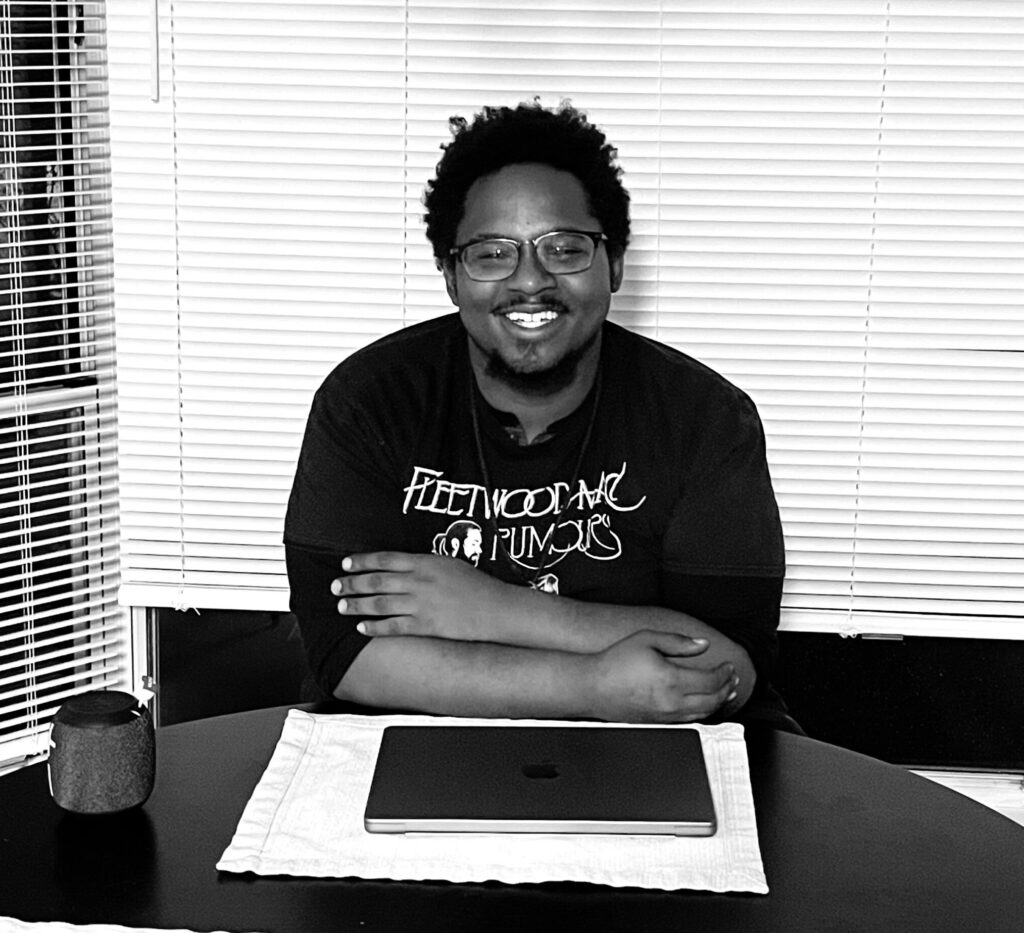Cornelius
Before I came to Skyland Trail, I knew mental health was important, but I didn’t know how to take care of mine. I wouldn’t say I ignored it—I just didn’t know what “prioritizing mental health” even looked like. I was stuck in survival mode. Substance use, financial stress, low self-esteem, body image issues, and complicated family relationships were part of my daily reality. The weight of all of it left me feeling hopeless. I was suicidal more often than I care to admit. Everything felt like too much.
When I arrived at Skyland, I didn’t even think I needed treatment. I was just going through the motions, assuming I’d be there for a few weeks, maybe less. But it didn’t take long for me to realize how unwell I actually was—and how badly I needed a reset.

My first impression of Skyland Trail was that it was beautiful. It didn’t look like what I thought “treatment” would look like. The space felt calm and intentional, like maybe it could hold the mess I had been carrying.
One of the most impactful parts of my treatment was Dual Diagnosis Core, where I learned how intertwined mental illness and substance abuse really are. It was eye-opening. My one-on-one sessions with my Primay Counselor were also incredibly healing. And I found unexpected strength through the adjunctive therapies—team building, music, art, gym-based programs—but especially horticultural therapy. Getting my hands in the dirt helped me reconnect to life in a real, grounding way.
My journey wasn’t marked by one big breakthrough, but rather a slow return to myself. As I got further into sobriety, stabilized on my medications, and came down from the chaos of withdrawal, I began to feel clarity again. I started noticing shifts in my thinking and in how I moved through the world. Slowly, I began to feel hopeful.
Today, I’m sober. I’m proud of that—more than I ever expected I could be. I used to not be able to go a day without drinking or using. Now, I don’t want to. Joining AA showed me a path forward and reminded me that I’m not alone. Hearing the stories of others gave me a glimpse of the future I wanted to create for myself.
That future looks so different than it did before treatment. I’m not depressed anymore. My anxiety has eased up. I have tools now—mindfulness, meditation, thought-stopping, self-compassion. I use them every day. Recovery for me isn’t just about staying sober—it’s about choosing peace, again and again.
There’s still one thing I’m working on: body dysmorphia. It’s a challenge that lingers, but I meet it now with more kindness. I don’t spiral like I used to. I give myself grace.
Today, I find a lot of joy in prayer, meditation, and staying connected to who I am outside of my diagnosis. I’m a musician. I produce and compose songs. I’m a warm, open person. And I’m a chef. Cooking brings me a sense of purpose and creativity that nothing else does.
I just started a new position at an Atlanta restaurant, and I’m excited—really excited—to be back in the kitchen. I’ve made conscious changes to ensure my mental health stays protected: better hours, a familiar environment, and above all, a stronger sense of self. The high-stress kitchens of my past contributed to a lot of my PTSD and instability. But now I enter that space sober, self-aware, and empowered. A big change from before!
One of the most beautiful parts of my time at Skyland was simply being surrounded by people who understood. Even if no one said it out loud, we shared a quiet bond, a sense that we didn’t have to mask our pain anymore. We were all working to climb out of something, and there was comfort in that collective effort.
If I could talk to myself at the start of this journey, I’d say: Trust the process. Be patient. Keep doing your best.
And to anyone considering treatment but feeling afraid: “It might be the best thing you ever do for yourself. It was for me.”
